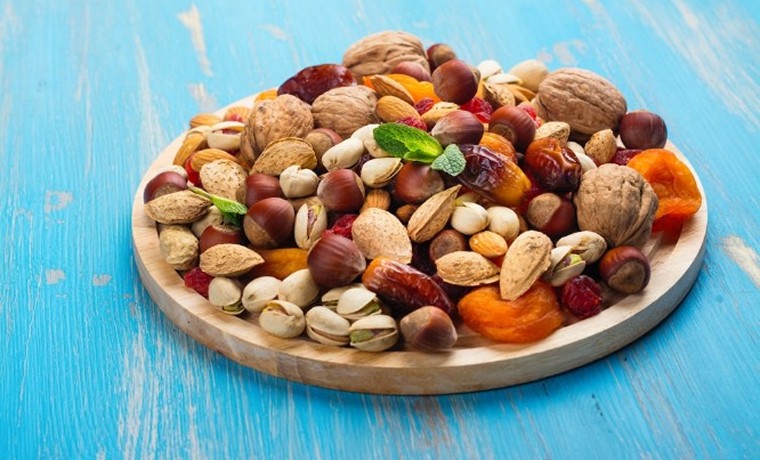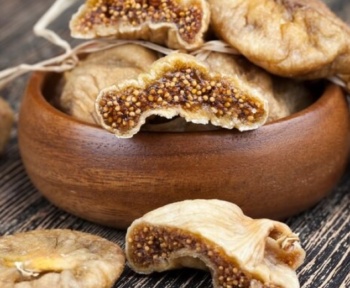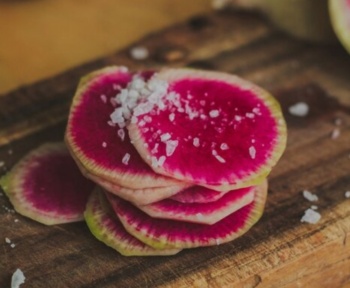Introduction
Vitamin B12 is a powerhouse nutrient our body depends on to keep things running smoothly. It boosts energy, helps form red blood cells, and keeps our nervous system healthy. While B12 is mainly found in animal products, did you know that dry fruits can help your body absorb and use B12 more efficiently? Yep, you read that right.
In this guide, we’re going to explore:
- Vitamin B12 is so important (it’s more than just energy).
- The dry fruits that can help your body get the most out of B12.
- Easy ways to add them to your diet (no need to make a fuss).
- Signs your B12 might be low.
Let’s dive in!
What is Vitamin B12, and Why Do You Need It?
Vitamin B12 is one of those vitamins you can’t ignore—it does a lot of heavy lifting in your body. It’s needed to make red blood cells, keep your nervous system in tip-top shape, and even help your body create DNA.
What Does Vitamin B12 Do?
Let’s break it down:
- Nervous System Health: Without enough B12, your nerves could suffer, leading to weird tingling or numbness.
- Red Blood Cells: B12 helps your body make red blood cells responsible for carrying oxygen all over your body.
- DNA Production: You need B12 for your cells to divide and regenerate. It’s all about keeping your body in working order.
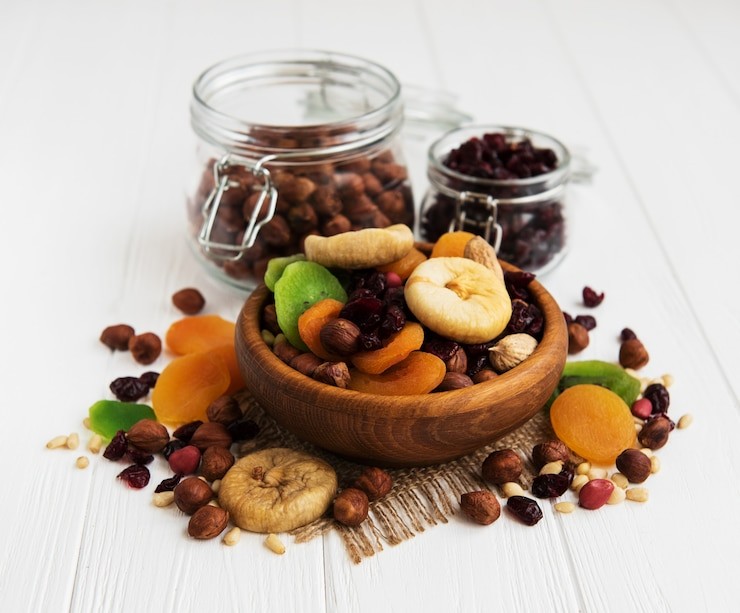
Why Do You Need It?
- Energy Boost: Feeling tired all the time? B12 might be the missing piece of the puzzle.
- Brain Power: It plays a role in memory and focus. So yeah, it helps when you’re trying to remember where you left your keys.
- Mood Balance: It’s also linked to mental health, helping you feel less stressed and more balanced.
How Much B12 Do You Need?
Here’s a simple chart for the daily B12 recommendations:

Which Dry Fruits Can Help You Get More Vitamin B12?
Dry fruits don’t have Vitamin B12 (they’re not magic), but they can help your body absorb and use it better. So, they’re like the sidekick that makes the superhero (B12) work harder for you.
1. Almonds
Almonds are packed with healthy fats and Vitamin E, which are great at helping your body absorb B12 from the other foods you’re eating. They don’t give you B12 directly, but they help your body do its job. Plus, they’re delicious, so it’s a win-win.
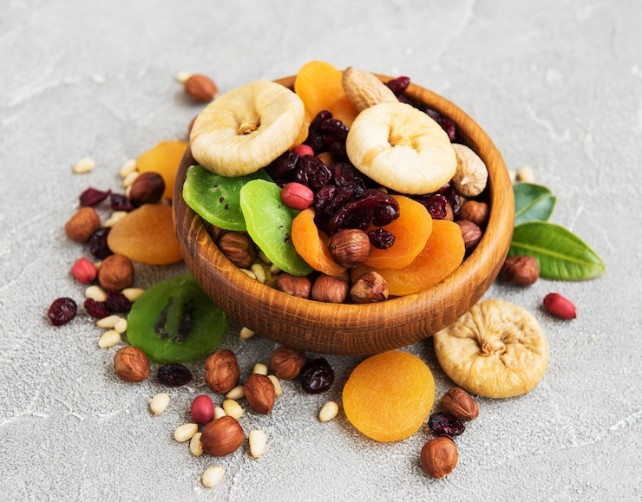
2. Walnuts
These brain-boosting nuts are high in omega-3 fatty acids. Not only are they good for your heart, but they also help your body absorb B12 more efficiently. Toss them on a salad or munch them straight from the bag.
3. Dried Apricots
Dried apricots are loaded with iron, which helps your body make the most of B12. The iron and B12 work together to give you that much-needed energy boost. Think of apricots as your go-to snack when you need a little pick-me-up.
4. Dried Mangoes
Who doesn’t love dried mangoes? They’re sweet, tangy, and full of Vitamin C. This vitamin helps your body absorb B12 better. So, snacking on these gives you the extra edge in ensuring your B12 intake doesn’t go to waste.
5. Dried Figs
Dried figs are a nutrient-packed superfood, full of fibre, iron, and magnesium. These minerals help your body process and use B12, keeping your energy levels high and your blood healthy. They also taste fantastic, which is always a bonus.
6. Dates
Dates are naturally sweet and loaded with potassium and magnesium. These minerals play a role in helping your body make the most of B12. They also provide a quick energy boost, perfect for that mid-afternoon slump.
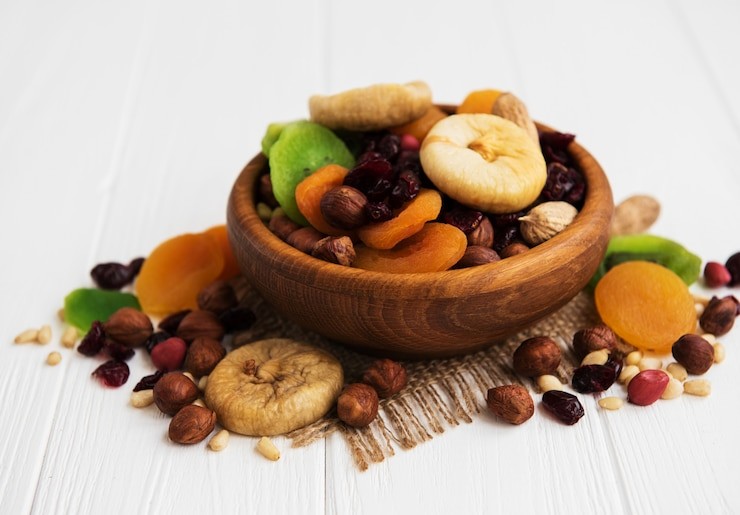
How to Eat More Vitamin B12-Rich Dry Fruits
Adding dry fruits to your diet is effortless—complicated recipes are unnecessary. Just toss them into your meals or snack on them whenever you like.
1. Snack on Them
Grab a handful of almonds, walnuts, or dried apricots and snack away. No prep time is needed, and you’ll get a nice mix of healthy fats, fibre, and B12-boosting nutrients.
2. Add Them to Your Breakfast
Top your morning cereal or yoghurt with dried mangoes, figs, or apricots. It’s an easy way to start the day immediately without much effort.
3. Blend Them into Smoothies
Throw some dried apricots, walnuts, and almonds into your blender with spinach and fruit. You’ll have a nutrient-packed smoothie in no time. (And it won’t taste like you’re drinking a salad.)
4. Create Healthy Desserts
Instead of indulging in sugary desserts, make healthy treats with dried figs, apricots, or dates. These naturally sweet fruits will satisfy your cravings while also benefiting your health.
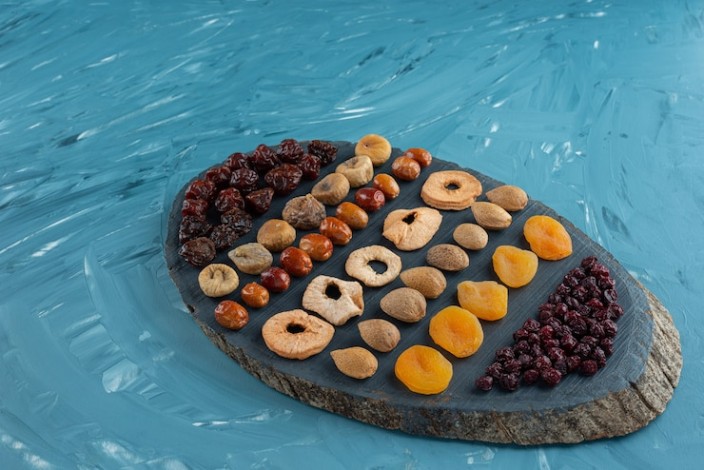
Quick Tip for Better Absorption:
Pair these dry fruits with foods high in Vitamin C—citrus fruits, strawberries, or bell peppers. Vitamin C and B12 work together to help your body absorb B12 better.
What Happens When You Don’t Get Enough Vitamin B12?
If you’re not getting enough B12, your body can start to feel it. Here are some signs to look out for:
- Fatigue: You always feel tired, no matter how much you sleep.
- Memory Issues: It’s harder to concentrate, and you might forget things more easily.
- Numbness: A tingling or numb sensation, especially in your hands or feet, could be a sign of B12 deficiency.
Who Needs to Pay Extra Attention to B12?
- Vegans and Vegetarians: Since B12 is mainly found in animal products, plant-based eaters must be extra mindful of their intake.
- Older Adults: As we age, our bodies become less efficient at absorbing B12.
- People with Health Conditions: Certain conditions like Crohn’s disease or celiac disease can impact B12 absorption.
How Dry Fruits Help Your Body Use Vitamin B12
Even though dry fruits don’t contain Vitamin B12 directly, they’re still crucial for ensuring your body uses the B12 you’re getting. They help your body absorb and process nutrients like B12 more efficiently. So, while dry fruits won’t do all the work, they help you get the most out of your B12 sources.
Interview with Dr Emily Thompson, Nutritionist
We chatted with Dr. Emily Thompson, a nutrition expert, to get her thoughts on how dry fruits can support B12 absorption. Here’s what she said:
“Dry fruits are an excellent addition to any diet. While they don’t directly provide B12, they’re packed with nutrients that help your body absorb and use it more effectively. Adding them to your meals is a smart way to make the most out of the B12 you’re getting.”
Dr. Thompson also reminded us that having a balanced diet is key to maintaining healthy B12 levels. Dry fruits are an easy, tasty way to do your part.
Best Ways to Store and Enjoy Vitamin B12-Rich Dry Fruits
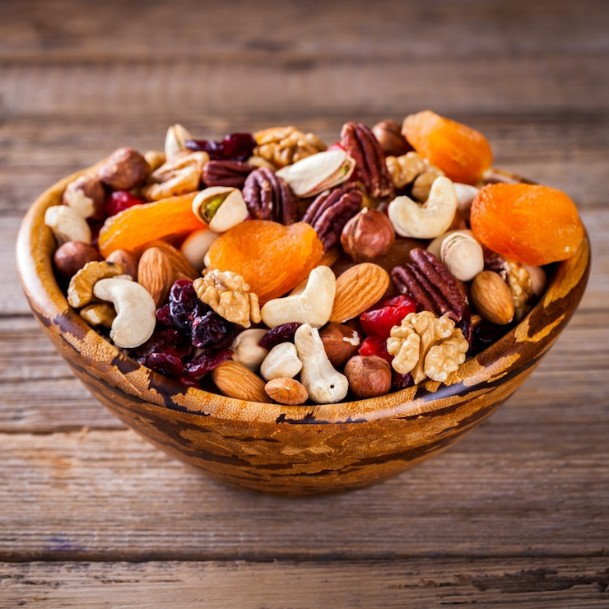
Keeping your dry fruits fresh and ready to eat is a breeze with these simple storage tips:
Storage Tips:
- Store dry fruits in an airtight container to keep them fresh.
- Please place them in a cool, dry spot, like your pantry, to preserve their nutrients.
Eating Tips:
- Make dry fruits a regular snack to stay energized throughout the day.
- Mix them into your meals for a sweet, nutritious boost.
Conclusion
Vitamin B12 is essential for a healthy body, and while dry fruits aren’t a direct source of B12, they play a key role in helping your body absorb and use it. Almonds, walnuts, apricots, and other dry fruits can ensure you get the most out of your B12 sources while providing many other health benefits.
Try adding these dry fruits into your diet, and you’ll be supporting your body in more ways than one.
FAQs
While dry fruits don’t contain Vitamin B12 directly, they help your body absorb and utilize B12 better. Almonds, walnuts, dried apricots, figs, and dates are excellent choices as they provide other nutrients that support B12 absorption, like magnesium, fibre, and healthy fats.
Dry fruits alone won’t cure B12 deficiency. Still, they can support your overall health and make it easier for your body to use B12 from other sources. Pairing them with B12-rich foods like eggs, dairy, and fortified cereals can help ensure you get enough of this essential vitamin.
To maximize B12 absorption, add dry fruits like almonds or dried apricots to your daily meals. You can snack on them directly, mix them into yoghurt, blend them into smoothies, or sprinkle them on your cereal or salad. Just make sure to balance them with B12-rich foods.
Yes, dry fruits are an excellent option for vegetarians and vegans. While they don’t provide B12, they are rich in fibre, healthy fats, vitamins, and minerals that help support overall health. Pair them with plant-based B12 supplements or fortified foods for a complete nutrient profile.
B12 deficiency can cause symptoms like fatigue, memory issues, and numbness in hands or feet. Dry fruits won’t directly prevent or treat B12 deficiency. Still, they help your body absorb B12 from other sources, keeping you energized and healthy. If you’re concerned about B12 deficiency, consult a healthcare provider.


